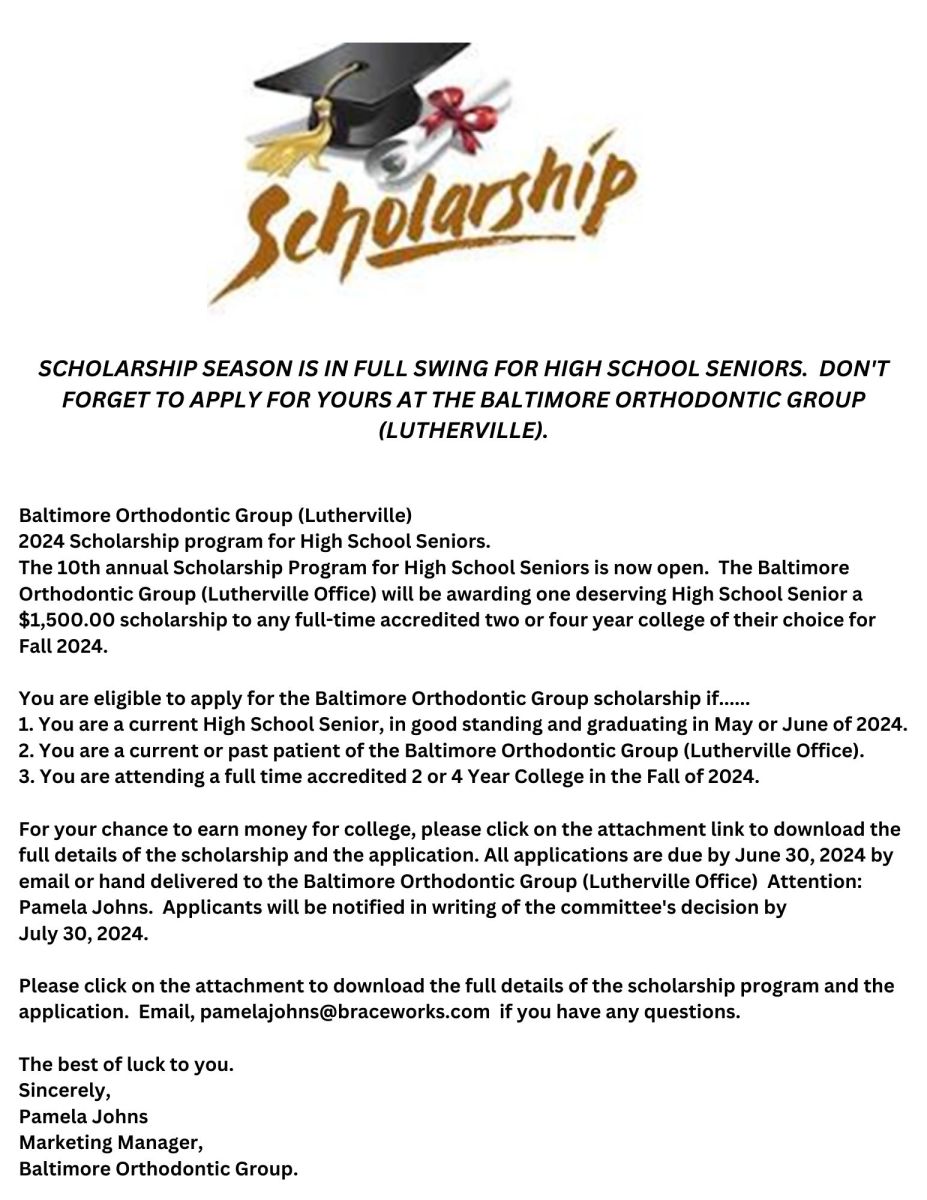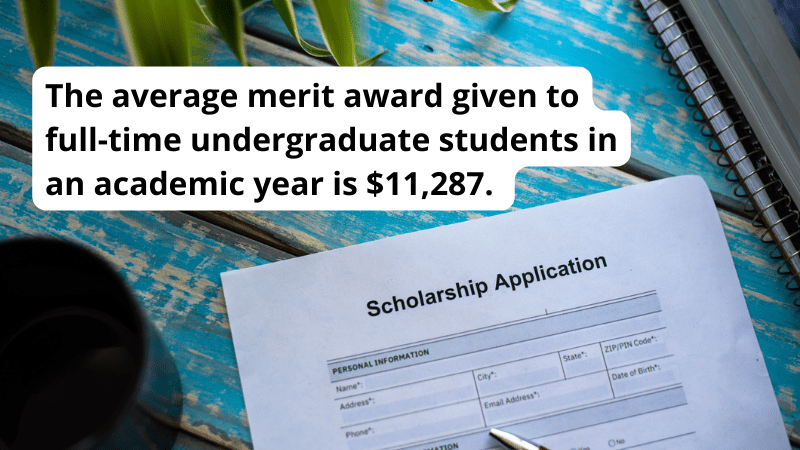The best time to apply for scholarships in high school is during junior year and early senior year. Start researching deadlines early to maximize opportunities.
Applying for scholarships can be a crucial step in funding your education. High school students should begin their scholarship search early to ensure they meet all deadlines. Starting in junior year allows ample time to gather necessary documents, write essays, and request recommendation letters.
Early applications often have more opportunities available and less competition. Many scholarships have deadlines in the fall of senior year, so starting early ensures you don’t miss out. Planning ahead reduces stress and increases the chances of securing financial aid. Preparing well in advance can make the scholarship application process smoother and more successful.
Introduction To Scholarship Timing
Understanding the best time to apply for scholarships is crucial. It helps students secure funds for their education. Scholarships have various deadlines. Planning ahead ensures you don’t miss opportunities.
Importance Of Early Planning
Early planning is essential for scholarship success. Starting early gives students more time. They can gather needed documents and write essays. Early applications stand out and show preparedness.
- More time for research
- Better quality applications
- Less stress during the process
Common Deadlines
Scholarship deadlines vary throughout the year. Here is a helpful table:
| Season | Typical Deadlines |
|---|---|
| Fall | September to November |
| Winter | December to February |
| Spring | March to May |
| Summer | June to August |
Knowing these deadlines helps you plan. Mark them on your calendar. Aim to complete applications a month before the deadline. This allows time for review and edits.

Freshman And Sophomore Years
The Freshman and Sophomore Years are crucial for high school students. These years set the stage for future academic and extracurricular success. Starting early can provide students with many scholarship opportunities later. Let’s explore the benefits of starting the scholarship search and preparation during these early years.
Building A Strong Foundation
During the Freshman and Sophomore Years, students should focus on building a strong academic foundation. Good grades are essential for many scholarships. Students should take challenging courses that interest them. Participation in extracurricular activities is also important. These activities show commitment and leadership.
Students should also start to build relationships with teachers. Teachers can provide valuable recommendations for scholarships. It’s helpful to create a resume of achievements early on. This can include awards, club memberships, and volunteer work. Keeping track of these accomplishments makes scholarship applications easier later.
Exploring Early Opportunities
There are many scholarships available specifically for Freshman and Sophomore students. Students should research these opportunities early. Starting early can help students understand the types of scholarships available. This can also help students identify what they need to work on to be eligible.
Some scholarships are based on essays or creative projects. Participating in essay contests or art competitions can be beneficial. Students should also look for local scholarships. These often have fewer applicants, increasing the chance of winning.
Parents and students can also attend scholarship workshops. These workshops can provide valuable tips and resources. Many schools offer guidance on scholarship applications. Taking advantage of these resources can make the process less overwhelming.
| Action | Benefit |
|---|---|
| Maintain good grades | Eligibility for academic scholarships |
| Participate in extracurricular activities | Show commitment and leadership |
| Build relationships with teachers | Obtain strong recommendations |
| Research early scholarships | Identify opportunities and requirements |
| Attend scholarship workshops | Gain valuable tips and resources |
Junior Year Strategies
Junior year is a crucial time for high school students. It’s the perfect time to start applying for scholarships. Early preparation can increase your chances of success. This section covers the essential strategies to follow during your junior year.
Researching Scholarships
Start by exploring various scholarship options. Use reliable scholarship search engines. Make a list of scholarships that match your interests and qualifications. Keep track of deadlines and requirements.
Here are some key points to consider while researching:
- Look for local scholarships offered by community organizations.
- Consider scholarships specific to your intended major.
- Check for scholarships from your high school or school district.
| Scholarship Name | Deadline | Requirements |
|---|---|---|
| Local Community Scholarship | March 1st | Essay, GPA above 3.0 |
| Science Major Scholarship | April 15th | Science project, GPA above 3.5 |
Organizing Application Materials
Keep all your application materials organized. Create a folder for each scholarship application. Include all necessary documents like essays, transcripts, and recommendation letters.
Consider the following steps for better organization:
- Make a checklist for each scholarship application.
- Gather all required documents in advance.
- Keep digital copies of all your materials.
Here is a simple checklist to follow:
- Essay: Write a unique essay for each scholarship.
- Transcripts: Request official transcripts from your school.
- Recommendation Letters: Ask teachers or mentors early.
Senior Year Priorities
Senior year is a critical time for high school students. It’s the last chance to make a strong case for scholarships. With so many responsibilities, students must prioritize their tasks effectively. Applying for scholarships should be a top priority.
Meeting Application Deadlines
Deadlines are crucial in senior year. Missing a deadline can mean losing a scholarship opportunity. Create a calendar with all scholarship deadlines. Use reminders to stay on track. Submit applications at least a week before the deadline. This ensures you have time to fix any issues.
Maximizing Last-minute Opportunities
Some scholarships are available throughout the year. Keep an eye on new opportunities. Check with your school counselor regularly. They might know about last-minute scholarships. Use scholarship search engines to find new listings.
- Check for local scholarships.
- Look for scholarships offered by community organizations.
- Consider smaller scholarships; they add up.
Don’t ignore smaller awards. Every bit helps to reduce college costs.
Summer Months
The summer months are a great time for high school students to apply for scholarships. With school out of session, students have more free time to focus on their scholarship applications. This time can be very productive when used wisely.
Utilizing Downtime
During summer, students have a lot of free time. They can use this time to search for scholarships. Many scholarship deadlines fall in the summer months. This makes it a perfect time to apply. Students can also use this time to gather important documents. These documents include transcripts, letters of recommendation, and personal statements.
Preparing For The Upcoming Year
Summer is a good time to start preparing for the next school year. Students can make a list of scholarships they want to apply for. They can also create a calendar with all the deadlines. This helps in staying organized and not missing any important dates.
Additionally, students can use this time to improve their skills. This includes writing essays, practicing for interviews, and researching potential scholarship opportunities. These activities can boost their chances of winning scholarships.
Below is a simple table to help keep track of scholarship applications:
| Scholarship Name | Application Deadline | Required Documents |
|---|---|---|
| Scholarship A | July 15 | Transcript, Essay |
| Scholarship B | August 1 | Recommendation Letter, Personal Statement |
| Scholarship C | August 20 | Transcript, Essay, Personal Statement |
By using the summer months wisely, students can increase their chances of winning scholarships and reduce stress during the school year.
Balancing Academic And Extracurricular Activities
Balancing academics and extracurriculars can be challenging for high school students. Yet, it’s crucial for scholarship applications. Time management, prioritizing tasks, and showcasing achievements are key. Below are tips to help students excel in both areas.
Time Management Tips
Effective time management is essential. Here are some practical tips:
- Create a schedule: Use planners or apps to organize tasks.
- Set priorities: Focus on high-impact activities first.
- Break tasks into chunks: Tackle assignments in smaller parts.
- Use downtime wisely: Study or read during free periods.
- Limit distractions: Stay focused by minimizing phone use.
Highlighting Achievements
To stand out, students must highlight their achievements. Here’s how:
- Document successes: Keep a record of awards and recognitions.
- Showcase leadership roles: Highlight positions in clubs or teams.
- Detail volunteer work: Emphasize community service involvement.
- Include academic honors: Mention honor roll or top grades.
- Use specific examples: Provide concrete instances of accomplishments.
| Activity | Achievement |
|---|---|
| Science Club | Won Regional Science Fair |
| Basketball Team | Team Captain, MVP Award |
| Community Service | 100+ Hours of Volunteering |
Leveraging School Resources
High school students often wonder about the best time to apply for scholarships. Utilizing school resources can streamline this process. Schools provide valuable tools and support to help you find the right scholarships. Leveraging these resources effectively can increase your chances of success.
Guidance Counselor Assistance
Guidance counselors play a crucial role in your scholarship journey. They have access to exclusive scholarship opportunities and can offer personalized advice. Schedule regular meetings with your counselor to stay updated on deadlines and requirements.
Guidance counselors can help you:
- Identify scholarships that match your profile
- Review your application materials
- Provide recommendation letters
- Offer tips for writing compelling essays
Utilizing Scholarship Databases
Many schools have access to scholarship databases. These databases compile numerous scholarship opportunities in one place. Ask your school’s career center about available databases.
When using scholarship databases, you can:
- Filter scholarships by criteria such as GPA, interests, or demographics
- Track application deadlines and requirements
- Save favorite scholarships for easy access
- Receive email notifications about new opportunities
Here is a quick comparison of popular scholarship databases:
| Database | Features |
|---|---|
| Fastweb | Extensive filters, essay tips, and career advice |
| Scholarships.com | Easy-to-use interface, personalized matches |
| Cappex | College reviews, scholarship search, and application tracking |
Using these resources can make your scholarship search more efficient.

Common Mistakes To Avoid
Applying for scholarships can be stressful. Avoiding common mistakes ensures success. Here are some mistakes to avoid.
Procrastination Pitfalls
Procrastination is the biggest enemy. Waiting too long reduces your chances. Many students wait until the last minute. This leads to incomplete or rushed applications.
- Start early to gather all required documents.
- Set a schedule for each scholarship application.
- Use reminders to keep track of deadlines.
Early applications show your commitment. They also give you time to revise and improve.
Incomplete Applications
Submitting an incomplete application is a common mistake. It can disqualify you immediately. Make sure all sections are filled out.
- Check the application instructions carefully.
- Ensure all personal information is accurate.
- Provide all required documents and essays.
Double-check your work before submission. Incomplete applications waste your time and effort.
Conclusion And Final Tips
Understanding the best time to apply for scholarships in high school is key. Here, we provide final tips to help you succeed.
Staying Organized
Keeping track of scholarship deadlines is crucial. Use a calendar or planner.
- Create a list of scholarship opportunities.
- Set reminders for application deadlines.
- Organize documents like essays and transcripts.
Staying organized helps you avoid missing important dates. A well-structured approach ensures you meet all requirements.
Continuous Improvement
Always aim to improve your applications. Seek feedback from teachers and mentors.
- Revise essays based on feedback.
- Update your resume with new achievements.
- Practice interview skills with a friend.
Continuous improvement helps you stand out. Make each application better than the last.

Frequently Asked Questions
What Month Is Best To Apply For Scholarships?
The best month to apply for scholarships is typically September. Many scholarship deadlines fall between October and December.
When Should Students Start Applying For Scholarships?
Students should start applying for scholarships as early as possible, ideally during their junior year of high school.
What Grade Is The Best To Start Applying For Scholarships?
Start applying for scholarships in your junior year of high school. Early applications increase chances of success.
Is It Better To Apply Early For Scholarships?
Yes, applying early for scholarships increases your chances of success. Early applications show commitment and provide more opportunities.
Conclusion
Timing is crucial when applying for scholarships in high school. Start early to maximize your opportunities. Research deadlines and plan ahead. Consistent effort can increase your chances of success. Stay organized and keep track of important dates. The best time to act is now, so get started today
